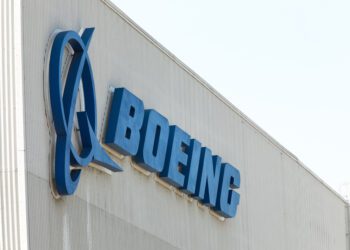US car factories reopened, but the ongoing coronavirus threatens the idea of business as usual.
As US car factories reopened for business last Monday, it was only a matter of time before the ongoing coronavirus crisis raised concerns for the tens of thousands of autoworkers returning to their jobs.
At least three Ford Motor employees at plants in Illinois and Michigan tested positive for the disease this week, leading to temporary shutdowns of factories while extensive cleaning takes place.
While automakers have enforced strict safety protocols, disruptions to production because of new infections are expected to continue to be an issue for the foreseeable future.
“It’s not a matter of necessarily creating a condition where it’s impossible for anyone to get sick,” Stephanie Brinley, principal automotive analyst at IHS Markit, told CNBC. “What they’re creating is an environment with which to handle it if something does happen, and to handle it quickly.”
And so it came to be. As soon as the Ford employees displayed potential coronavirus symptoms, they were tested and quarantined. Their co-workers were also asked to self-quarantine for two weeks, Ford revealed.
Elsewhere, General Motors and Fiat Chrysler, which also ramped up manufacturing last week, have not disclosed how many employees they have tested since the reopening, and neither company has moved to close any plants.
A Fiat Chrysler spokeswoman said no employees had tested positive while GM has thus far declined to comment.
Rigorous testing
Pressured by the United Auto Workers union (UAW), Detroit carmakers have promised rigorous testing for employees as the industry attempts to get back to work amid the “new normal.”
The protocols include notifying supervisors of any symptoms, testing, and if the results come back positive, quarantining for 14 days. The companies will also deep clean affected workspaces and implement contact tracing.
Decisions will then be taken as to whether entire plants need to be shut down, or if only partial shutdowns are necessary.
Detroit automakers and others around the country have also implemented pre-work questionnaires and body temperature checks upon arrival. Employees must also wear masks and practice social distancing during breaks when possible.
GM has testing kits at each one of its manufacturing plants and has established relationships with LabCorp and Sonic Healthcare to receive results within 48 hours.
Ford and Fiat Chrysler have formed relationships with hospitals such as Beaumont Health, Michigan’s largest hospital system, to conduct testing of workers who display symptoms.
Yet because of the scarcity of test kits and the practicality of testing every employee, so-called mass testing has been ruled out, despite stated concerns by the UAW.
“In terms of testing, I have said to all of our employers that we expect a commitment from them for full testing as soon as it is possible,” Rory Gamble, acting president of the UAW, wrote to members earlier this month. “Until then, we expect as much testing as is possible to be conducted.”












